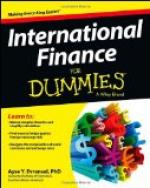These evils that spring from hereditary property are obvious. But it may be questioned whether they outweigh the advantages that arise from it. The desire to possess is a strong stimulus to activity in production, because possession is the mark of success in it, and all healthy-minded men like to feel that they have succeeded; and almost equally strong is the desire to hand on to children or heirs the possessions that the worker’s energy has got for him. In fact it may almost be said that in most men’s minds the motive of possession implies that of being able to hand on; they would not feel that they owned property which they were bound to surrender to the State at their deaths. If and when society is ever so organized that it can produce what it needs without spurring the citizen to work with the inducement supplied by possession, and the power to hand on property, then it may be possible to abolish the inequities that hereditary property carries with it. As things are at present arranged it seems that we are bound to put up with them if the community is to be fed and kept alive. At least we can console ourselves with the thought that property does not come into existence by magic. Except in the case of the owners of land who may be enriched without any effort by the discovery of minerals or by the growth of a city, capital can only have been created by services rendered; and even in the case of owners of land, they, and those from whom they derived it, must have done something in order to get the land.




